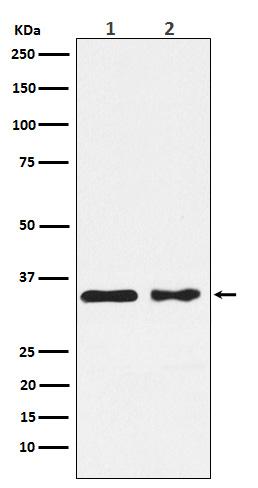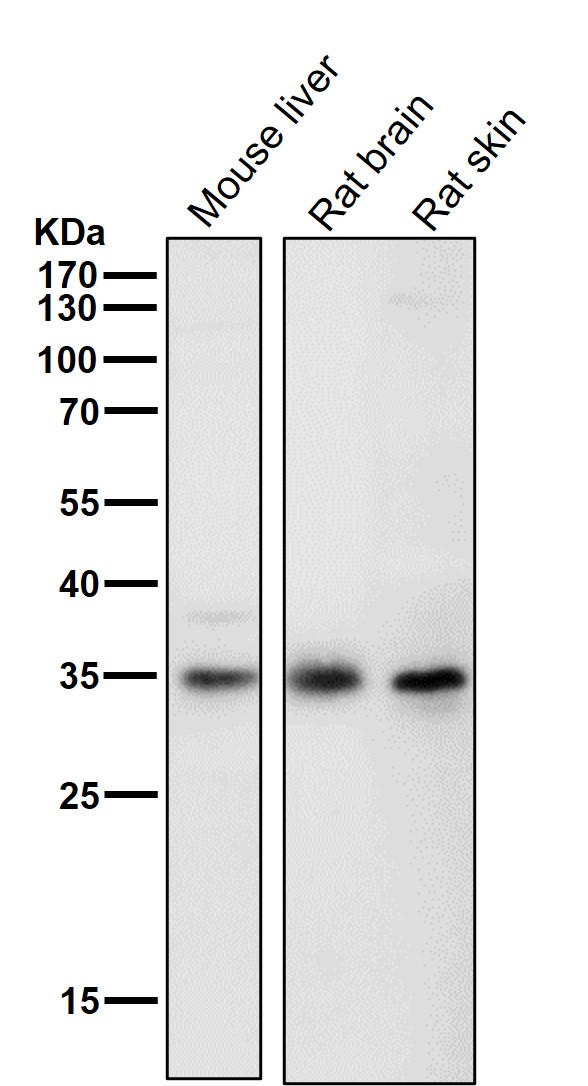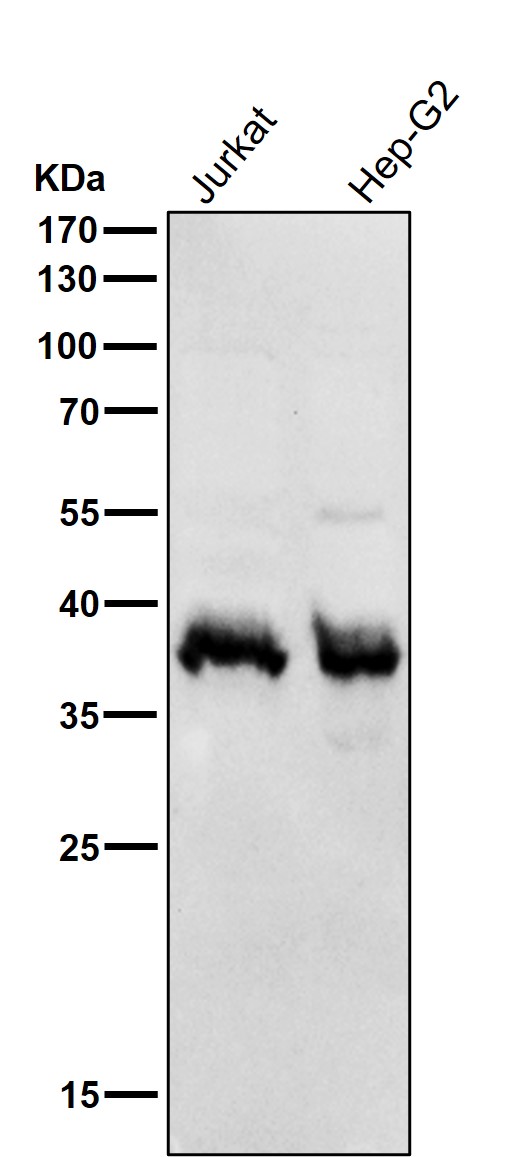


| WB | 1/1000-1/2000 | Human,Mouse,Rat |
| IF | 咨询技术 | Human,Mouse,Rat |
| IHC | 咨询技术 | Human,Mouse,Rat |
| ICC | 技术咨询 | Human,Mouse,Rat |
| FCM | 咨询技术 | Human,Mouse,Rat |
| Elisa | 咨询技术 | Human,Mouse,Rat |
| Aliases | CK1; CK1A; CKI alpha; CKIa; Csnk1a1; HLCDGP1;;CK I alpha |
| WB Predicted band size | Calculated MW: 39 kDa ; Observed MW: 35 kDa |
| Host/Isotype | Rabbit IgG |
| Antibody Type | Primary antibody |
| Storage | Store at 4°C short term. Aliquot and store at -20°C long term. Avoid freeze/thaw cycles. |
| Species Reactivity | Human,Mouse,Rat |
| Immunogen | A synthesized peptide derived from human CK I alpha |
| Formulation | Purified antibody in PBS with 0.05% sodium azide,0.05% BSA and 50% glycerol. |
+ +
以下是3篇关于CSNK1A1抗体的参考文献摘要,按研究主题分类整理:
---
1. **文献名称**:*Casein Kinase 1 Alpha 1: A Mechanistic Player in Cancer and Target for Drug Development*
**作者**:Knippschild U., et al.
**摘要**:综述了CSNK1A1在Wnt/β-catenin信号通路中的调控机制,强调其抗体在检测肿瘤组织磷酸化底物中的应用,并探讨其作为癌症治疗靶点的潜力。
---
2. **文献名称**:*Loss of CSNK1A1 in Myelodysplastic Syndrome: Impact on Hematopoietic Stem Cell Function*
**作者**:Schneider R.K., et al.
**摘要**:通过免疫沉淀和Western blot(使用CSNK1A1特异性抗体),揭示骨髓增生异常综合征中CSNK1A1基因缺失导致p53蛋白稳定性异常,促进恶性克隆扩增。
---
3. **文献名称**:*D4476. a Selective CK1 Inhibitor, Modulates DNA Damage Response via CSNK1A1 Degradation*
**作者**:Richards M.W., et al.
**摘要**:利用CSNK1A1抗体验证抑制剂D4476对激酶活性的抑制效果,证明其通过泛素化途径降解CSNK1A1.增强癌细胞对放疗的敏感性。
---
**提示**:如需具体实验方法(如抗体货号、实验条件),可补充说明进一步筛选!
The CSNK1A1 antibody targets the Casein Kinase 1 Alpha 1 (CSNK1A1) protein, a serine/threonine kinase involved in diverse cellular processes. CSNK1A1 regulates key pathways, including Wnt/β-catenin signaling, circadian rhythms, DNA repair, and cell proliferation. It phosphorylates substrates to modulate protein stability, localization, and interactions, impacting development, metabolism, and disease. Dysregulation of CSNK1A1 is linked to cancers, neurodegenerative disorders, and inflammatory conditions, making it a focus for therapeutic research.
CSNK1A1 antibodies are essential tools for studying the protein's expression, function, and interactions. They are used in techniques like Western blotting, immunohistochemistry, and immunofluorescence to quantify protein levels, assess tissue distribution, or visualize subcellular localization. Specific antibodies help identify post-translational modifications or binding partners, aiding mechanistic studies. Researchers also utilize these antibodies to explore CSNK1A1's role in disease models, such as its oncogenic or tumor-suppressive effects in different cancers. Validated antibodies with high specificity ensure reliable detection, supporting both basic research and drug development efforts targeting CSNK1A1-related pathways.
×